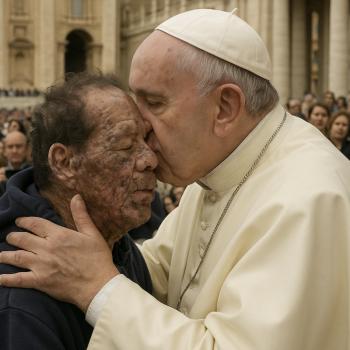What's unusual about Felicia Simms is that she does not appear to turn to Christianity or any other religion for her moral certainty, in the way that, famously, Sarah Palin credits her Christian faith for her decision to carry her son Trig, who has Down syndrome, to term. Instead, Simms seems to cling to a vague idea of "nature" as the guarantor of human value and dignity: when an ultrasound revealed the conjoined status of the twins and her obstetrician suggested she abort the fetuses, Simms says that she wouldn't consider abortion for a moment. "I think I have a lot more respect for nature than a lot of other people," she says.
On this point, however, Simms is wrong: nature is pitiless, and it offers no inherent moral basis on which to preserve the life and human dignity of the weak or disabled. Indeed, nature would certainly have destroyed Tatiana and Krista at birth: it's almost inconceivable that they would have survived a natural delivery. Nor would nature have provided an easy way for a mother to nourish craniopagus infants, even if they had survived a natural delivery. Instead, Simms appears to be "smuggling" Christian ideas into a secular discourse to give content and value to the otherwise blank categories of humanity, respect, and dignity. She's not alone, of course: I've cited in this space the work of Steven Smith, who argues that secularism as a whole must systemically smuggle in Christian ideas to give meaning to notions of justice, equality, and freedom.
Thus the joined lives of Tatiana and Krista offer a profound challenge to social conservatism: in a meritocratic society, can traditional family structures accommodate individuals who fall far outside the bounds of normal expectations and roles? And they simultaneously offer a profound challenge to secular libertarianism: can a godless nature provide any basis on which to protect the lives and dignity of the weak and innocent among us? In this way and so many others, the disabled lead us to the most important questions we encounter as humans. I am grateful for the innocent, joyous union of Tatiana and Krista, and for the grace of their mother Felicia Simms.





